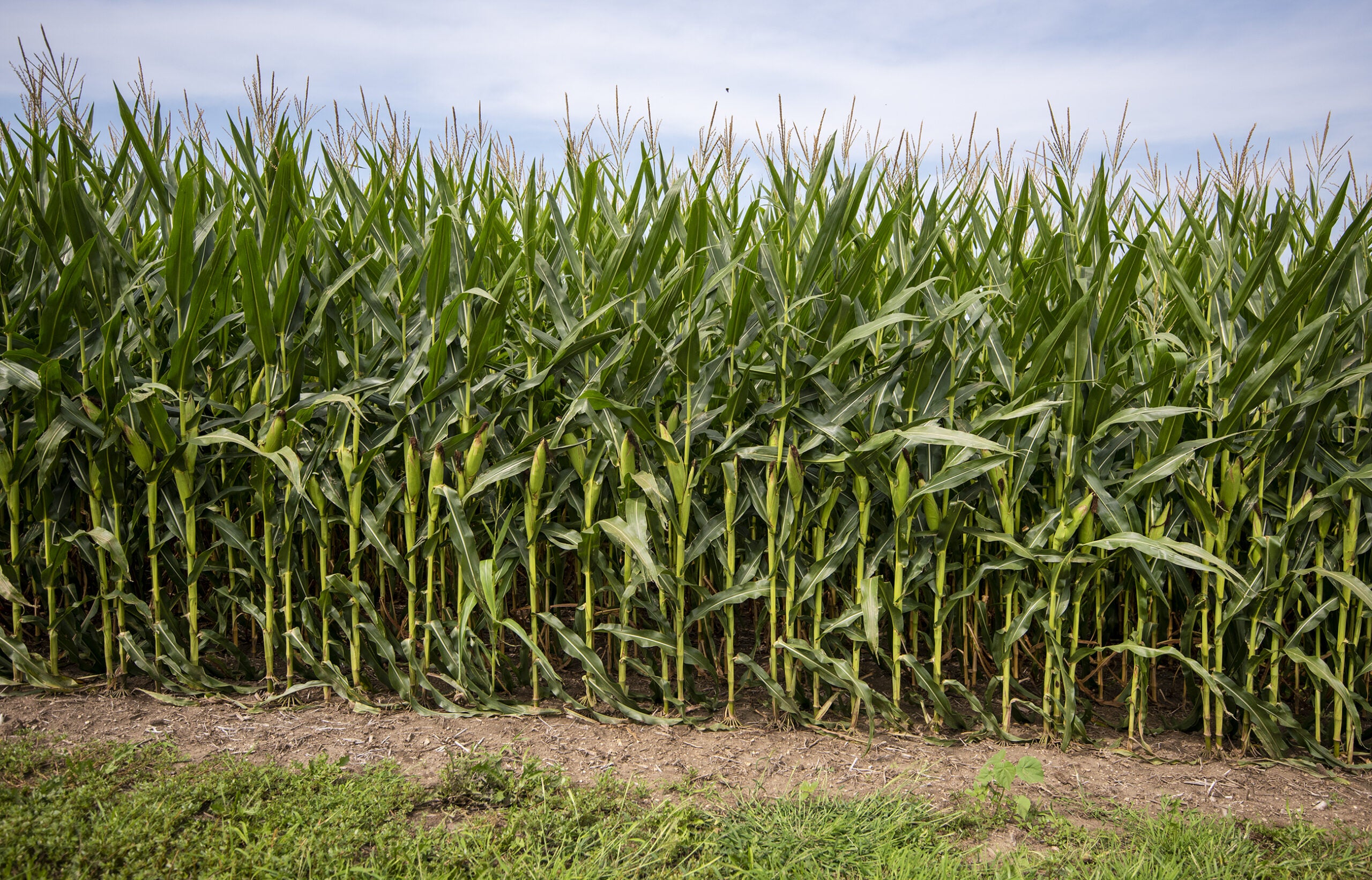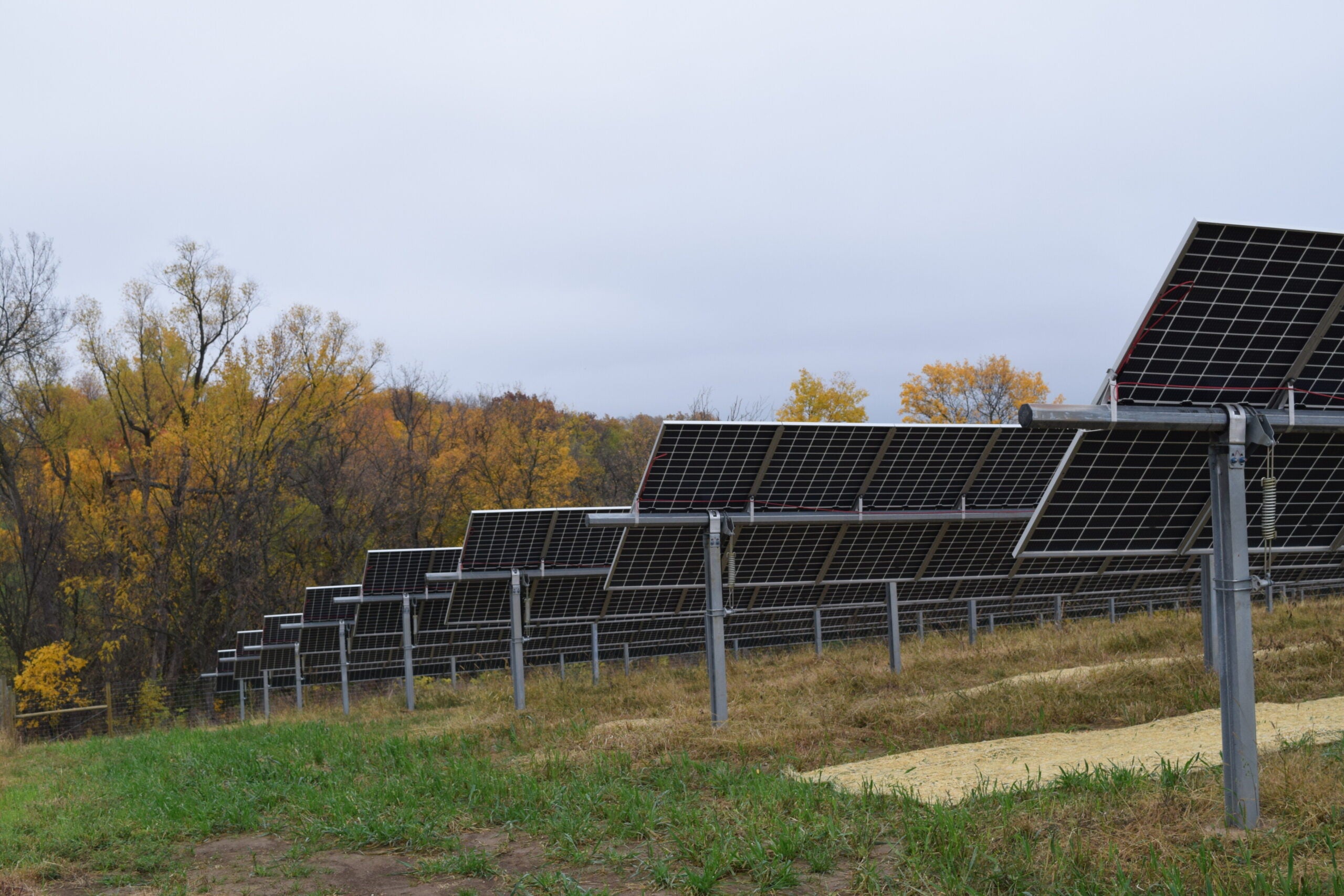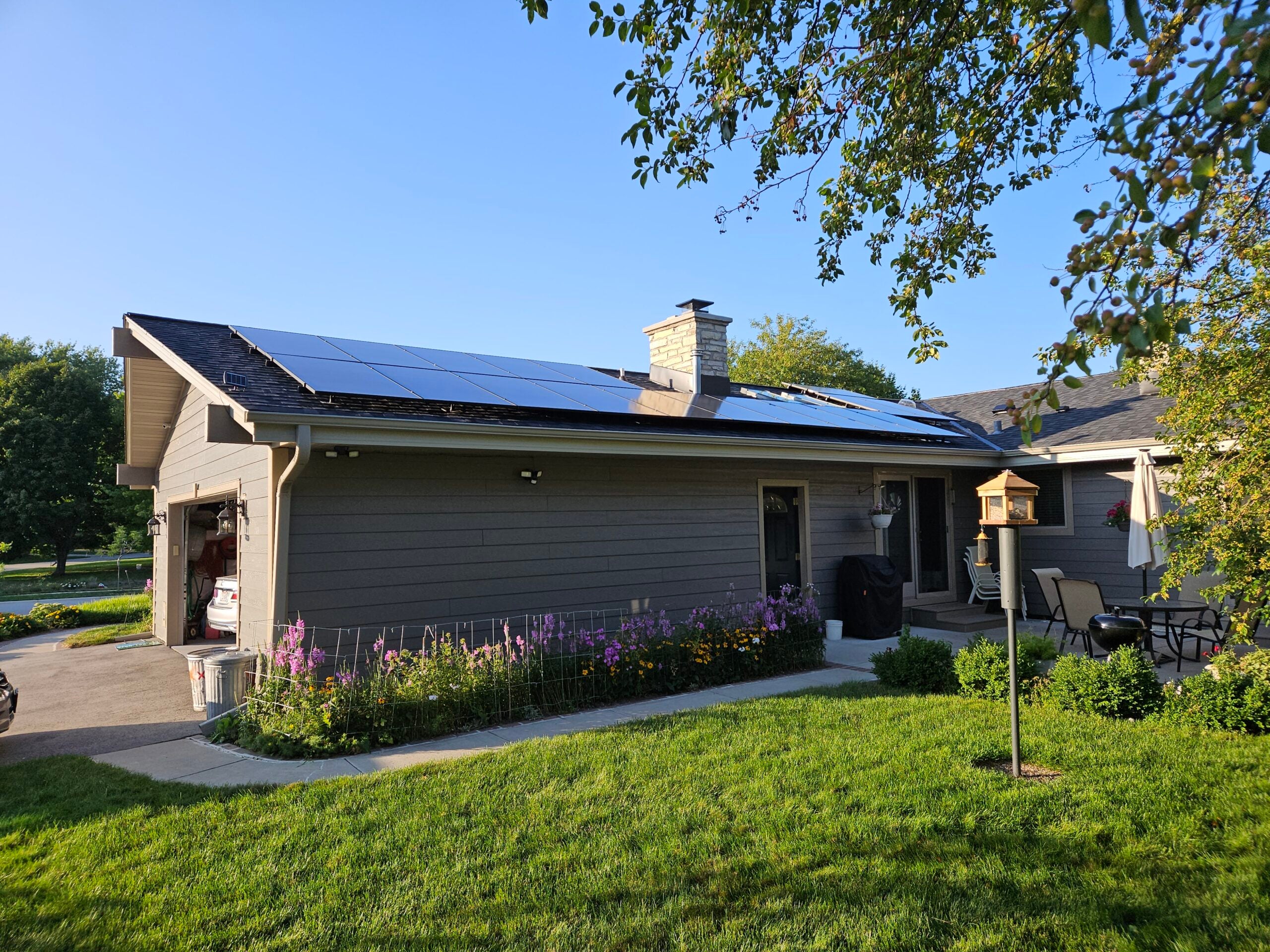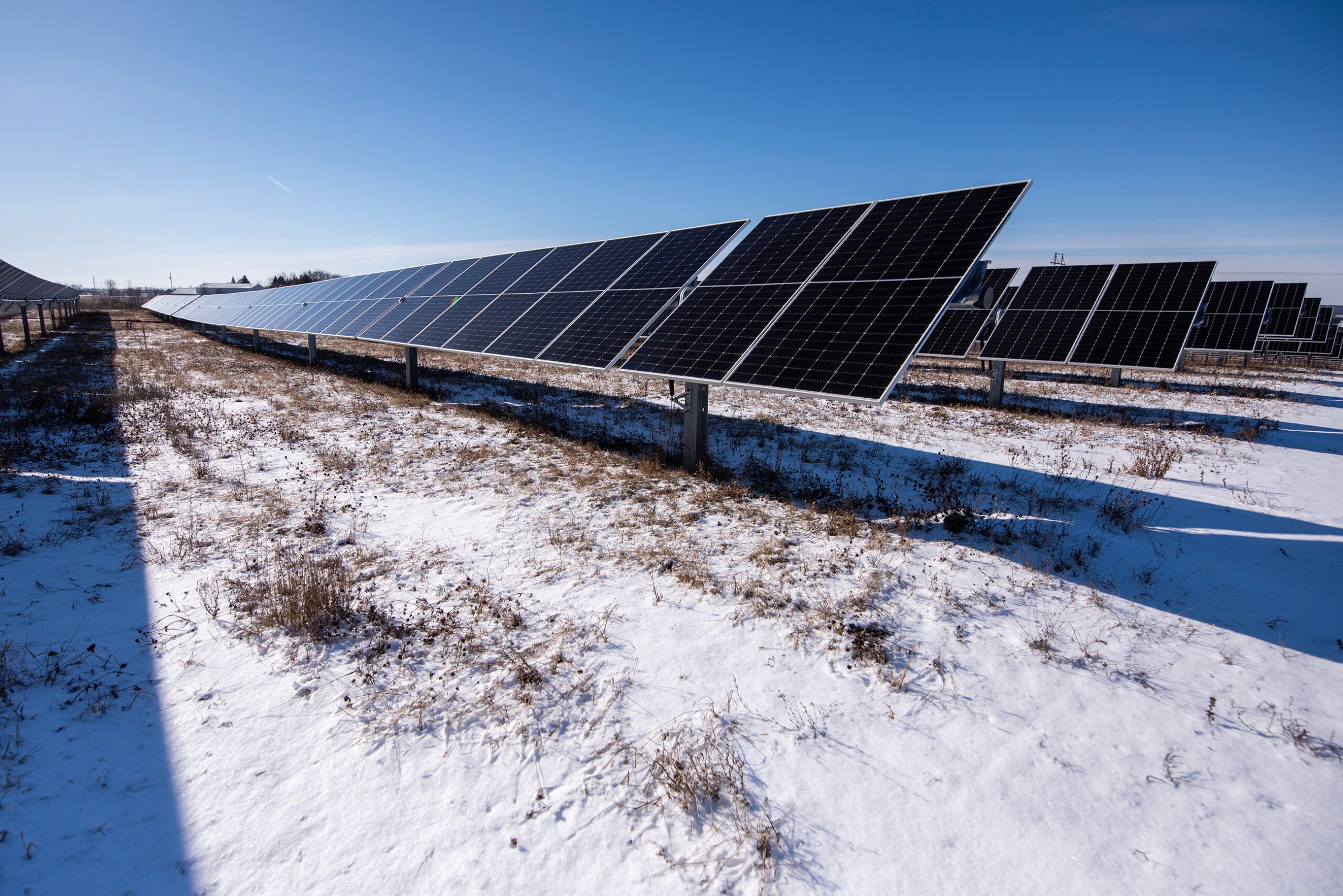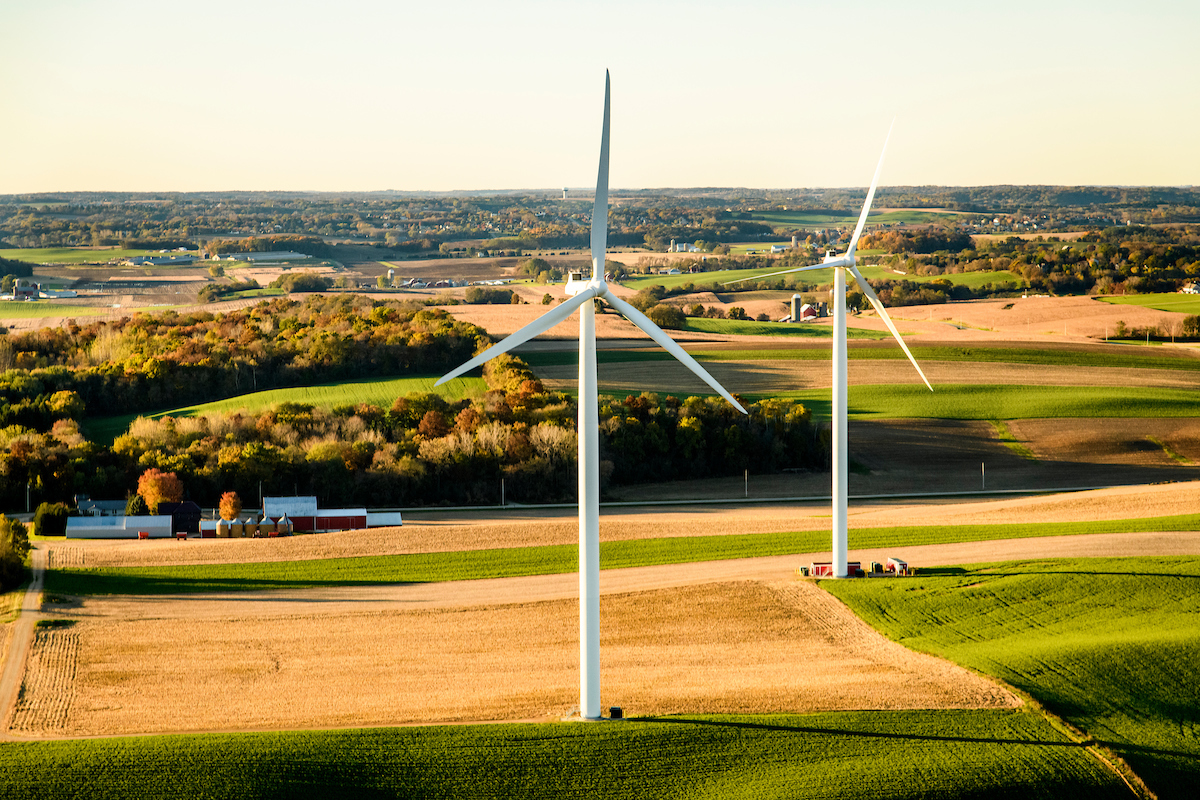Converting less than one-third of the roughly 1 million acres Wisconsin uses to grow corn for ethanol into solar farms would boost the state’s energy production and help reduce carbon emissions, according to a new report from Clean Wisconsin, an environmental advocacy nonprofit.
Clean Wisconsin looked at both the gross energy production and the energy “inputs” required for solar and ethanol production.
It found that 88 percent of the energy generated by solar goes to society and 12 percent is offset by production requirements. For ethanol, only 20 percent of the energy goes to society and 80 percent is offset by production.
News with a little more humanity
WPR’s “Wisconsin Today” newsletter keeps you connected to the state you love without feeling overwhelmed. No paywall. No agenda. No corporate filter.
“Corn needs to be grown, harvested and processed into ethanol, all of which require energetic inputs. Likewise, solar panels need to be manufactured and installed,” said Paul Mathewson, science program director for Clean Wisconsin. “When accounting for inputs, the net energy production of solar is over 100 times that of corn ethanol.”
Mathewson said growing corn for ethanol also has a negative environmental impact on the state’s waterways because corn requires chemical inputs like pesticides and nitrogen fertilizer.
“Agriculture contributes to about 90 percent of the nitrate contamination problems,” he said. “And corn needs a lot of nitrogen fertilizer to grow at the scale and at the intensity that we grow in Wisconsin.”
Corn is the number one crop in Wisconsin, covering around 4 million acres of land in the state, about one-fourth of which is used for ethanol production, according to the study.
For comparison, the state has 3,500 acres dedicated to solar, less than 1 percent of the land devoted to corn for ethanol, researchers said.
To achieve Clean Wisconsin’s target of net-zero carbon emissions by 2050, the state needs to build about 280,000 acres of solar farms.
“With just a fraction of what we’re using already to grow corn ethanol for energy, we can produce enough homegrown energy (with) solar panels that would power our state’s clean energy economy,” said Chelsea Chandler, Clean Wisconsin’s climate, energy and air program director. “And we’d be improving our water quality, our air and our soil health at the same time.”
Mathewson said farmers can receive annual lease payments for leasing their land out for solar projects, which would compensate for lost profits from corn.
“It’s a reliable payment you’re gonna get every year that has built-in escalation over time,” he said. “And corn is variable year to year, depending on the crop conditions, your yield and commodity prices.”
However, a spokesperson for the Wisconsin Corn Growers Association said Wisconsin’s corn production is crucial to global food security, and said the study did not calculate the economic value of growing corn.
“Wisconsin farmers contribute food, feed and energy to our state, and farmers are essential stewards of their environment,” the spokesperson said in a statement. “Clean, affordable energy comes from many sources, including low-carbon, renewable ethanol. Consumers benefit from having choices, and rural economies benefit from farmers.”
But corn-based ethanol may not be as clean as it was once believed to be. A 2022 study published in the Proceedings of the National Academy of Sciences found the production of corn-based ethanol in the United States from 2008 to 2016 failed to meet greenhouse gas emissions targets and had a negative impact on water quality, land used for conservation and other ecosystem processes.
Tony Abate, conservation director for the nonprofit Groundswell Conservancy, said his organization is concerned with preserving the state’s “richest farm soils” for food production.
When developers look at potential farm lands that could be used for solar projects, Abate said he hopes they examine the soil and choose to develop on lands that do not have high-quality soil.
“Our recommendation is that when projects like that come up — or development projects of any kind, really — is that the farmland soils are at least taken into consideration because we have limited amounts of soil in the country where we can grow food long-term,” he said. “Groundswell is not trying to get in the way of smart development.”
Concerns about using farmland for solar panels are one of the reasons Clean Wisconsin chose to focus its study on corn-based ethanol, Mathewson and Chandler said.
“We are a big ag state — we grow a lot of food — but it’s just not true that we’re only using our ag land to grow food right now,” Chandler said. “We can use land to grow a lot more solar electricity and that’s not at odds with feeding ourselves or feeding folks around the country and the world.”
She said now’s the time to take actions to address climate change and move toward renewable energy — and creating more solar farms would do just that.
“The best time to do something about climate change was yesterday, or decades ago when we really started understanding this problem and the impacts that it would have,” Chandler said. “The next best option is to work today to accelerate climate solutions. And we really do need to work quickly and urgently.”
Wisconsin Public Radio, © Copyright 2025, Board of Regents of the University of Wisconsin System and Wisconsin Educational Communications Board.

